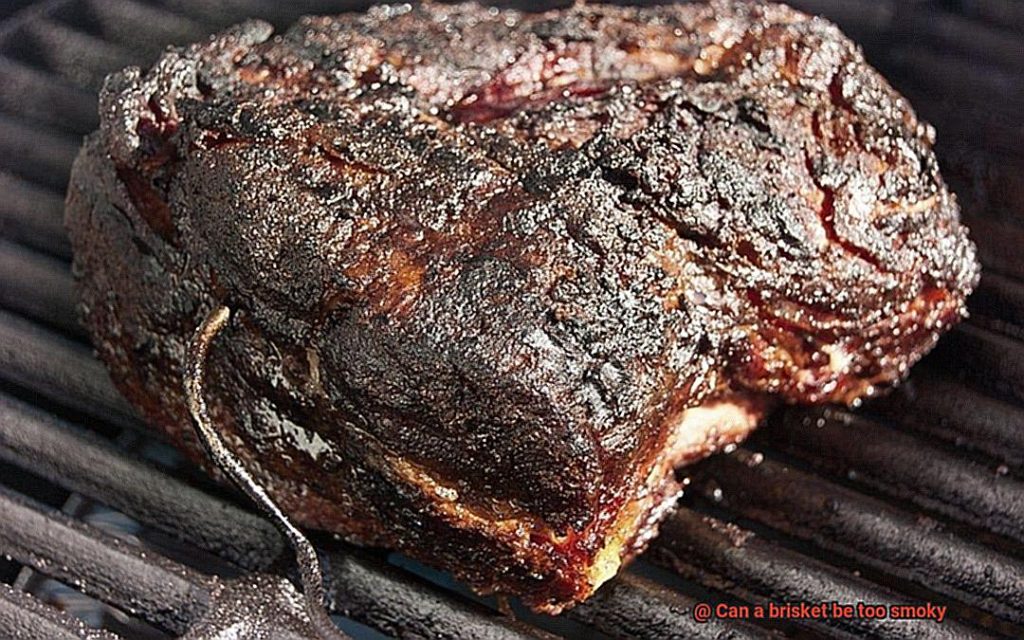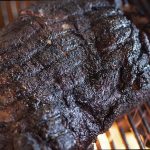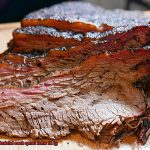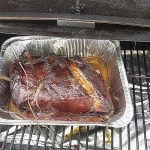Picture this: the tantalizing aroma of a flawlessly smoked brisket, a culinary masterpiece that has captured the hearts and taste buds of meat enthusiasts worldwide. We’ve all heard the tales of sizzling barbecues, thick smoke swirling through the air, and tender slices of brisket that make your taste buds dance with joy. But in the midst of these smoky wonders, there’s a burning question we must explore: Can a brisket be too smoky?
Get ready to embark on a flavorful journey as we dive headfirst into the world of smoke and unravel the complexities behind this age-old debate. Is there truly such a thing as “too smoky,” or is it simply a matter of personal preference? Let’s delve into the delicate balance between smoke and perfection, uncovering potential pitfalls or unexpected delights that lie within the realm of smoky brisket.
Contents
What is a Brisket?
Enter the tantalizing realm of smoked brisket. As a seasoned expert, I am here to take you on a journey through the depths of this delectable meat. Today, we will delve into the essence of what makes a brisket so extraordinary, the art of achieving the perfect smokiness, and uncover the possibility of an overly smoky brisket. Let’s embark on this flavorful adventure.
What is a Brisket?
A brisket is a cut of meat originating from the breast or lower chest of a cow. This revered cut is renowned for its succulent tenderness and deep flavor when cooked with precision. It boasts an abundance of connective tissue, which transforms into melt-in-your-mouth goodness during the long cooking process, resulting in juicy and tender slices.
Preparing the Brisket for Smoking:
To prepare the brisket for its smoky destiny, it is essential to trim off excess fat and silver skin. This meticulous step ensures even cooking and allows the flavors to permeate the meat more effectively. Many accomplished pitmasters also advocate for applying a dry rub or marinade to elevate its taste before it meets the smoker’s embrace.
Achieving the Perfect Balance of Smoke:
Smoking a brisket is an art that revolves around striking the ideal equilibrium in terms of smokiness. While smoke imparts an unrivaled flavor, too much can overpower the natural essence of the meat. The choice of wood utilized for smoking plays a pivotal role in achieving this delicate balance. Popular options include oak, hickory, mesquite, and pecan, each infusing their distinct character into the final masterpiece.
Avoiding Over-Smoking:
Indeed, it is possible for a brisket to succumb to an excessive smoky fate. When over-smoked, the meat can develop an overpowering and bitter taste, masking its inherent flavors. Additionally, an abundance of smoke can penetrate too deeply into the meat, rendering it dry and tough.
Tips to Avoid Over-Smoking:
- Select quality wood: Opt for wood that imparts a pleasant flavor without overwhelming the meat’s natural essence.
- Monitor temperature vigilantly: High temperatures can lead to increased smoke production, necessitating precise temperature control throughout the smoking process.
- Gradually increase smoking time: Commence with shorter smoking times, gradually adjusting to achieve the desired level of smokiness.
- Salvaging an overly smoky brisket: Transform adversity into triumph by thinly slicing the brisket and serving it with complementary sauces or incorporating it into dishes where the smoky flavor can be harmonized or diluted.
Can a Brisket be Too Smoky?
Close your eyes and imagine the tantalizing aroma of a perfectly smoked brisket, its mouthwatering flavors dancing on your taste buds. But wait, can a brisket be too smoky? Is there a point where the smokiness becomes overpowering and detracts from the meat’s natural flavors? Join us as we dive into the world of smoky briskets and uncover the secrets to achieving the perfect balance between flavor and smoke.
The Factors at Play:
To truly understand the quest for the ideal level of smokiness, we must first explore the various factors that influence it. The type of wood used for smoking plays a significant role, with each wood imparting its own unique flavor profile. Mesquite, for example, is known for its bold and assertive taste, while oak and fruitwoods offer a more delicate touch. Selecting the right wood can make all the difference in achieving that perfect smoky balance.
Finding the Sweet Spot:
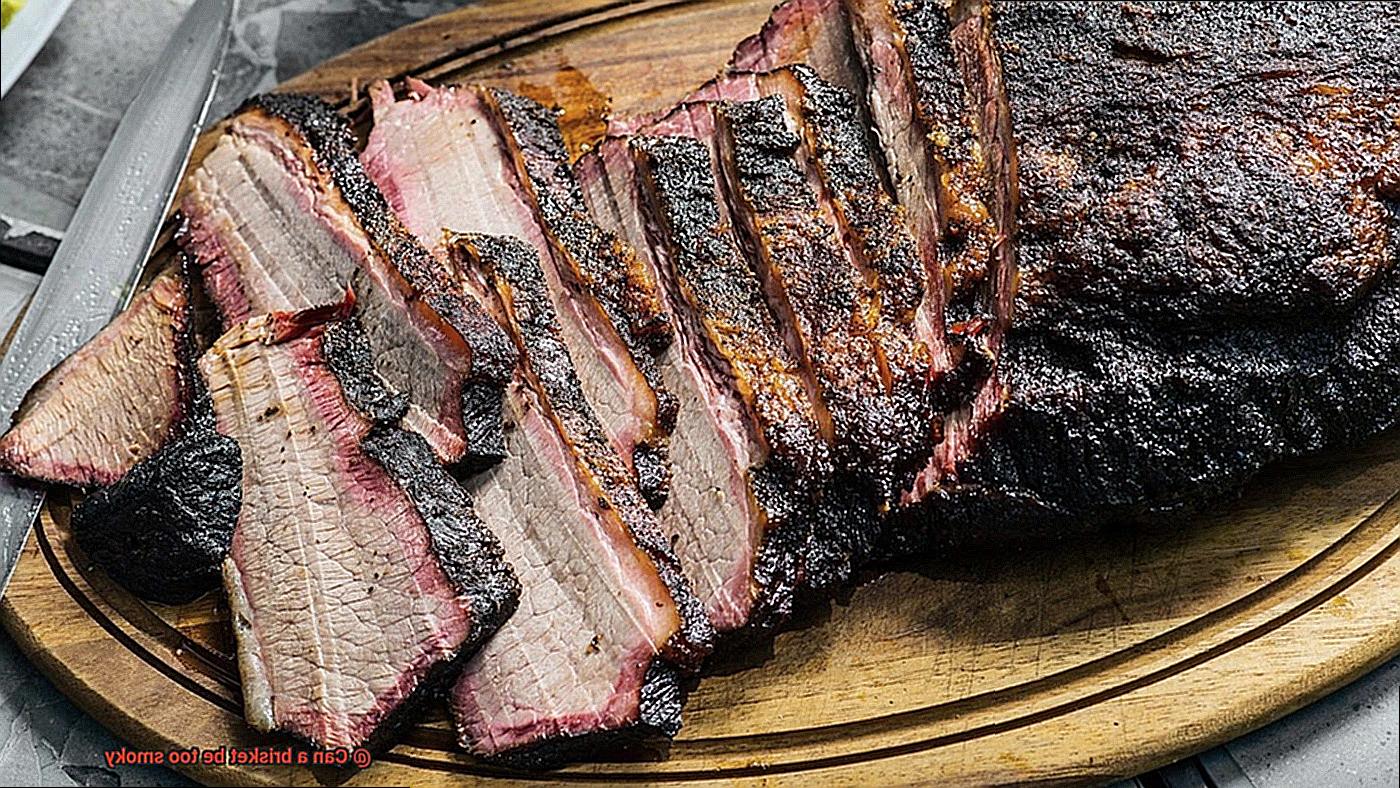
Now that we understand the importance of wood selection, let’s talk about quantity and duration. Too much smoke can transform a heavenly brisket into an unappetizing nightmare. Controlling the amount of smoke produced, as well as managing temperature and airflow in your smoker, are vital steps to achieving that delicate balance between smokiness and meat flavor. Patience is key here, as finding that sweet spot can take time and practice.
Consider Personal Preferences:
Taste is subjective, and what may be too smoky for one person could be just right for another. When preparing your brisket for a gathering or event, consider the preferences of your audience. A little bit of research or a simple conversation can go a long way in ensuring everyone leaves satisfied. Asking about their preferred level of smokiness can help you tailor your cooking approach accordingly.
Avoiding Dryness:
Here’s where things get tricky. Over-smoking can lead to dryness, resulting in tough and less juicy meat. Monitoring the internal temperature of the brisket during smoking is crucial to achieving optimal tenderness. Striking a balance between smoky flavor and moisture is essential for a truly exceptional brisket experience. The smoke should enhance the meat’s natural juiciness, not detract from it.
Salvaging the Situation:
But fear not, dear grill masters. If you find yourself with a brisket veering toward the smoky side, there is hope for redemption. Consider slicing off the outer layer, which tends to absorb more smoke. This simple act can help tone down the intensity and salvage the dish. Alternatively, serving your brisket with sauces or condiments that complement and balance out the flavors can also save the day.
Factors That Determine the Level of Smokiness
Today, we’re delving into the factors that determine the level of smokiness in your mouthwatering brisket. From the selection of wood to cooking time and everything in between, we’ll unlock the secrets to achieving that irresistible smoky flavor that will leave your guests begging for more.
Wood Selection: The Foundation of Smokiness
Let’s start with the foundation of smokiness – the type of wood. Think of it as the conductor of a smoky symphony. Hardwoods like oak and hickory bring bold and robust flavors, while fruitwoods such as apple and cherry offer a milder and sweeter essence. Striking the perfect balance is key – too much wood can overpower your brisket, while too little may leave you craving more.
Smoking Method: The Rhythm Section of Flavor
The smoking method you choose is like the rhythm section in our flavorful band. Hot smoking infuses heat and smoke simultaneously, resulting in a pronounced smoky flavor. Cold smoking provides a subtler touch by exposing the brisket to smoke without applying heat. And for a harmonious blend of both, smoke roasting combines elements of hot smoking and roasting for a perfectly balanced smoky taste.
Cooking Time: Timing is Everything
Ah, timing is everything. The longer your brisket spends in the smoker, the more it absorbs that delectable smoky goodness. But beware – there’s a fine line between perfection and over-smoking. Too much time can lead to bitterness and an unpleasant aftertaste. Keep a close eye on that clock to strike the ideal balance.
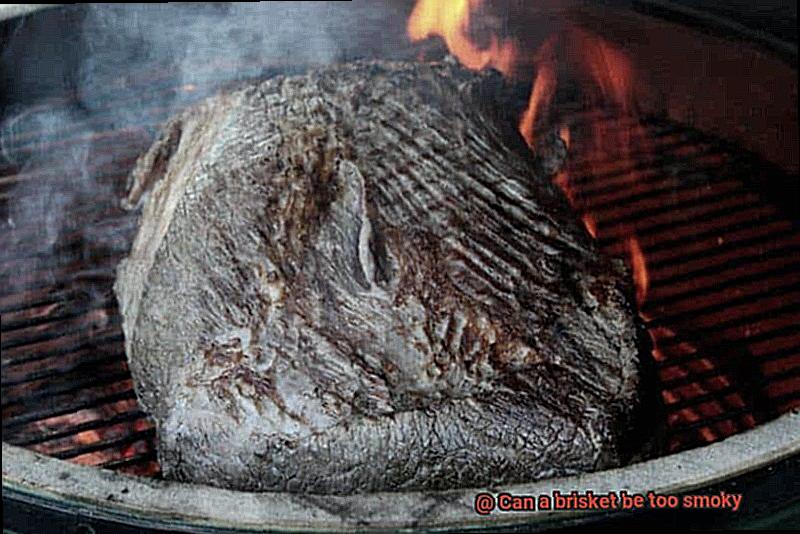
Airflow Control: Harnessing the Power of Air
Just as a gentle breeze enhances a flame, airflow control is crucial in achieving the desired level of smokiness. A well-ventilated smoker with proper airflow ensures a clean burn and even distribution of smoke. This prevents your brisket from becoming overly smoky and guarantees a harmonious flavor profile.
Dry Rubs and Marinades: Elevating the Smoky Masterpiece
Now, let’s add some seasoning to our smoky masterpiece. The ingredients in your dry rubs or marinades can elevate the smokiness to new heights. Spices like smoked paprika, cumin, or chipotle powder bring their own smoky undertones, enhancing the flavor profile even before the brisket enters the smoker. Choose these flavorings wisely to complement, not overpower, the smokiness.
Techniques to Achieve Perfectly Smoked Brisket
We’re about to delve into the techniques that will have your friends and family clamoring for seconds, their taste buds dancing with delight.
First and foremost, let’s establish what makes a perfectly smoked brisket. It’s all about that tantalizing smoke ring, the delectable bark, and meat so tender and juicy it practically melts in your mouth. But how do you strike that delicate balance of smoke flavor without overpowering the meat? It all begins with selecting the right wood.
When it comes to wood selection, there are a few heavy-hitting contenders. Hardwoods like oak, hickory, and mesquite reign supreme, imparting a robust smokiness that doesn’t overwhelm. For those seeking a touch of subtle sweetness, fruitwoods like apple or cherry are ideal companions.
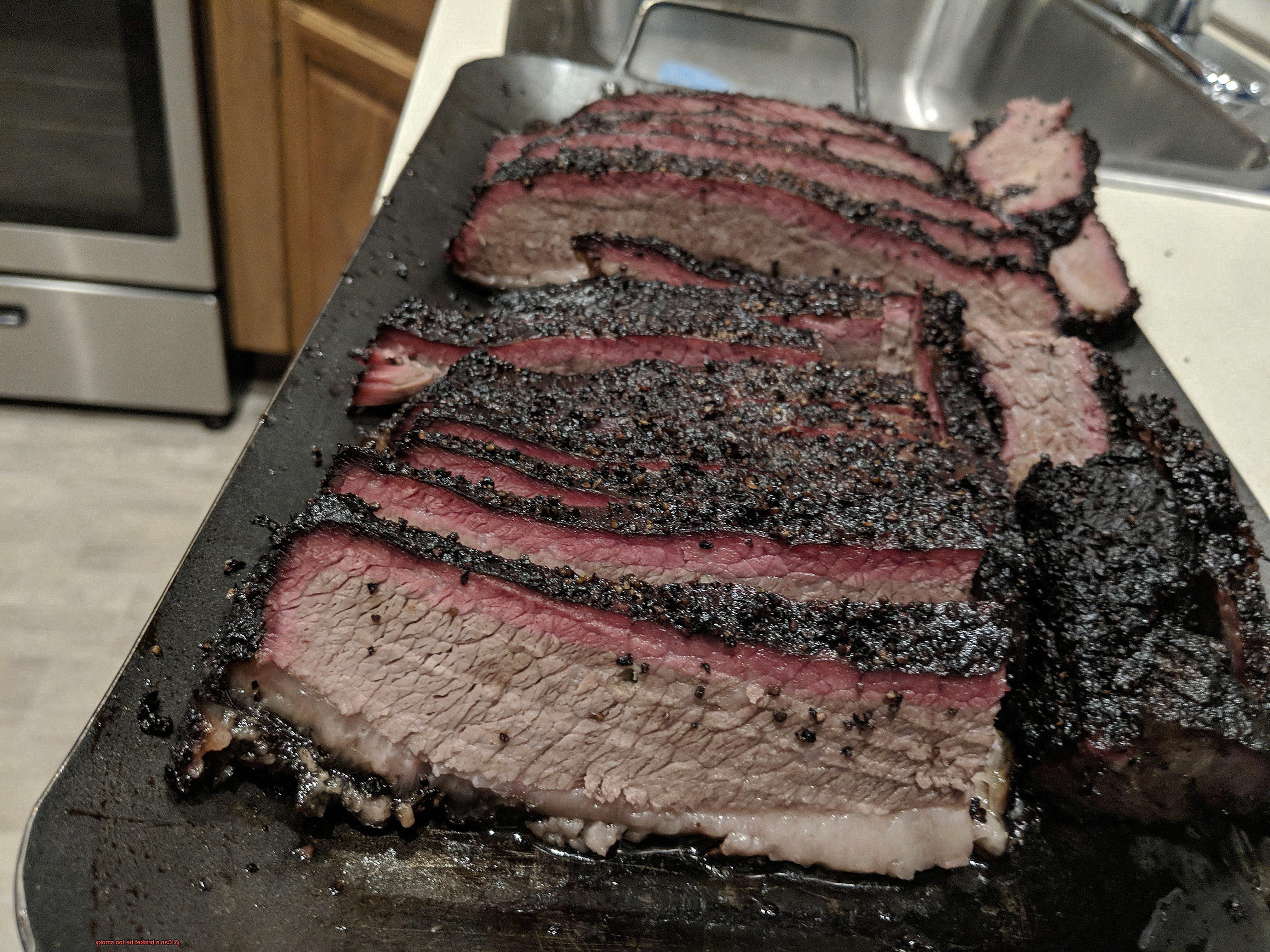
Now, let’s stoke the fire of knowledge regarding fire control. Maintaining a consistent temperature throughout the smoking process is paramount. Too much heat risks excessive smoke and potential disaster for your brisket. Arm yourself with a reliable thermometer and vigilantly monitor your smoker’s temperature, making adjustments as needed to stay within the optimal range.
Speaking of smokers, investing in quality pays dividends. Seek out a smoker with proper insulation and precise controls for temperature regulation. This ensures your brisket receives just the right amount of smoke without drowning in an ocean of overwhelming flavor.
Harness the power of a water pan to unlock even greater control over your smoke. Placing a water pan in your smoker creates an oasis of temperature regulation and adds moisture to the cooking environment. This safeguard prevents your brisket from drying out while reducing excessive smoke production. The water acts as a buffer, harmonizing flavors and producing a magnificently balanced smoke experience.
Timing is everything when it comes to smoking brisket. Aim for approximately 1 hour of smoking time per pound of meat. However, bear in mind that each brisket possesses its own unique personality, requiring adjustments based on size and thickness.
For those seeking the next level of smoke mastery, consider wrapping your brisket in foil or butcher paper. This technique, known as the Texas Crutch, cradles your brisket in a cocoon during the smoking process. The result? Moisture is locked in, excessive smoke is rebuffed, and the cooking time accelerates. The grand finale: a tender masterpiece that will leave your guests weak in the knees.
Lastly, don’t forget to grant your brisket a well-deserved rest before unleashing your slicing prowess. This allows the juices to harmonize throughout the meat, resulting in a more succulent and flavorful final product. When it’s time to carve, remember to slice against the grain. This maximizes tenderness and ensures each bite is a sublime experience.
Types of Wood for Smoking Brisket
In this comprehensive guide, we will delve into the world of wood for smoking brisket and uncover the unique flavor profiles they bring to the table. Get ready to tantalize your senses as we explore the smoky wonders that await.
Oak: The Unsung Hero
When it comes to smoking brisket, oak is the versatile warrior that often goes unnoticed. With its slow and even burn, it creates a symphony of flavors that enriches your meat without overpowering it. Picture sinking your teeth into succulent, juicy brisket infused with a perfectly balanced blend of smokiness – that’s the magic of oak at work.
Hickory: A Bold and Robust Companion
If you crave a flavor that demands attention, hickory is your go-to wood. Its intense and robust nature adds a bold character to your brisket, complementing the richness of the meat with its deep smoky notes. However, like a master chef adding a pinch of magic, use hickory sparingly to avoid overwhelming the meat and let its essence shine.
Mesquite: The Texan Legend
Mesquite is for those who dare to embrace the boldness of Texas-style barbecue. Its strong and distinct flavor creates a sweet and earthy smoke that adds depth and complexity to your brisket. But heed this cautionary tale – mesquite can be overpowering if used excessively. Combine it with other woods for a harmonious balance that will leave you craving more.
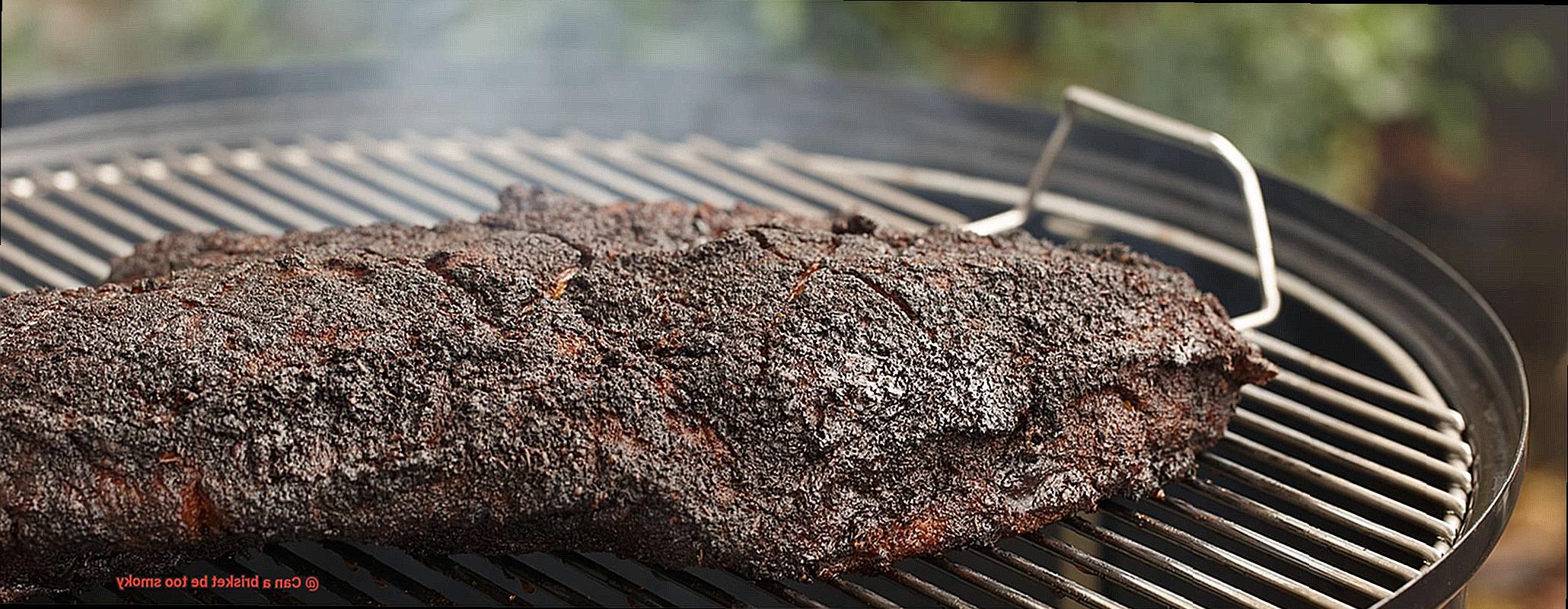
Fruit Woods: A Sweet Symphony
Imagine a delicate dance of flavors on your palate as you savor every bite of your smoked brisket. Apple or cherry wood bring a milder and sweeter smoke that complements the natural sweetness of the meat. These fruit woods provide a subtle fruity aroma, elevating your brisket to new heights of deliciousness, creating a harmonious symphony of flavors.
Pecan: The Gentle Giant
For those seeking a more subtle yet delightful smoky experience, pecan wood is your gentle giant. Similar to hickory but milder in taste, it imparts a delightful smoky flavor that won’t overpower your brisket. It’s the perfect alternative for those who want to enjoy the essence of a wood-fired masterpiece without the intense smokiness.
Experiment and Find Your Signature Style:
Now that you possess the knowledge of each wood type’s secrets, it’s time to unleash your inner culinary artist. Mix and match different woods to find your signature smoky flavor. Remember, the size and quality of the wood matter too – opt for seasoned hardwood chunks or chips for a clean and consistent smoke that will take your brisket to new heights.
Duration of Smoking
Smoking, an age-old culinary technique, adds a distinct flavor and aroma to various meats. The duration of smoking is a critical aspect that determines the intensity of smokiness in your meat masterpiece. In this comprehensive guide, we will delve into the factors that influence the duration of smoking, allowing you to unlock the secrets to perfectly smoked delicacies that will leave your taste buds dancing.
Size and Thickness:
The size and thickness of the meat play a vital role in determining how long it should be subjected to the ethereal embrace of smoke. Larger cuts require more time for the flavors to penetrate every fiber, while thicker portions demand additional hours to ensure an even distribution of smoky goodness.
Type of Smoker:
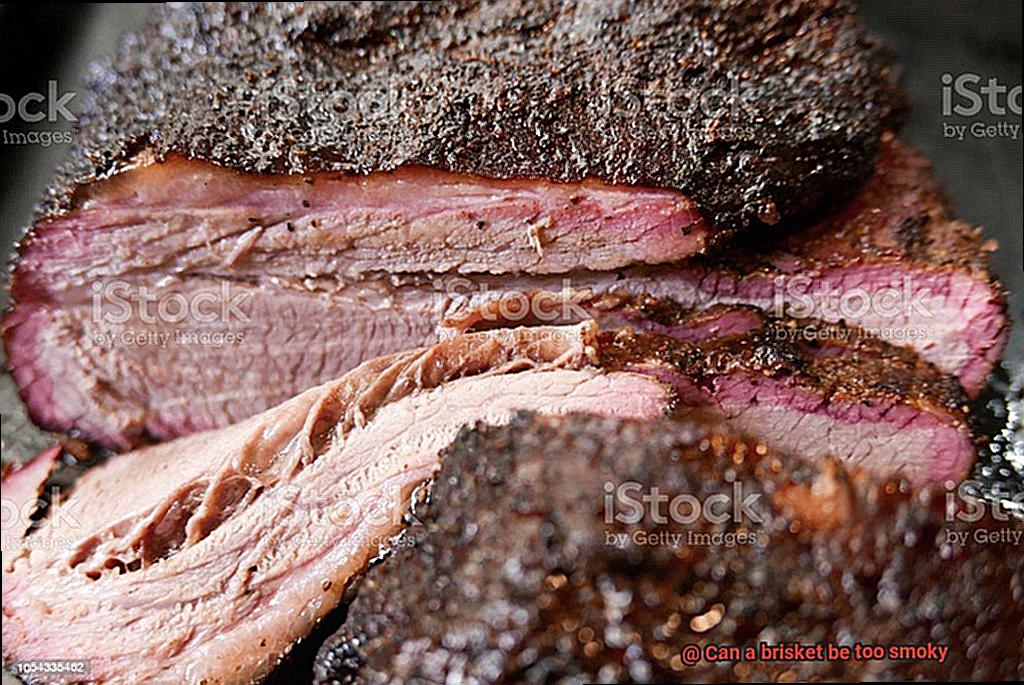
The choice of smoker can be a game-changer when it comes to the duration of smoking. Offset smokers, known for their indirect heat source, tend to lengthen smoking times as they work their magic slowly and steadily. On the other hand, electric or pellet smokers offer precise temperature control, potentially reducing overall smoking time without compromising quality.
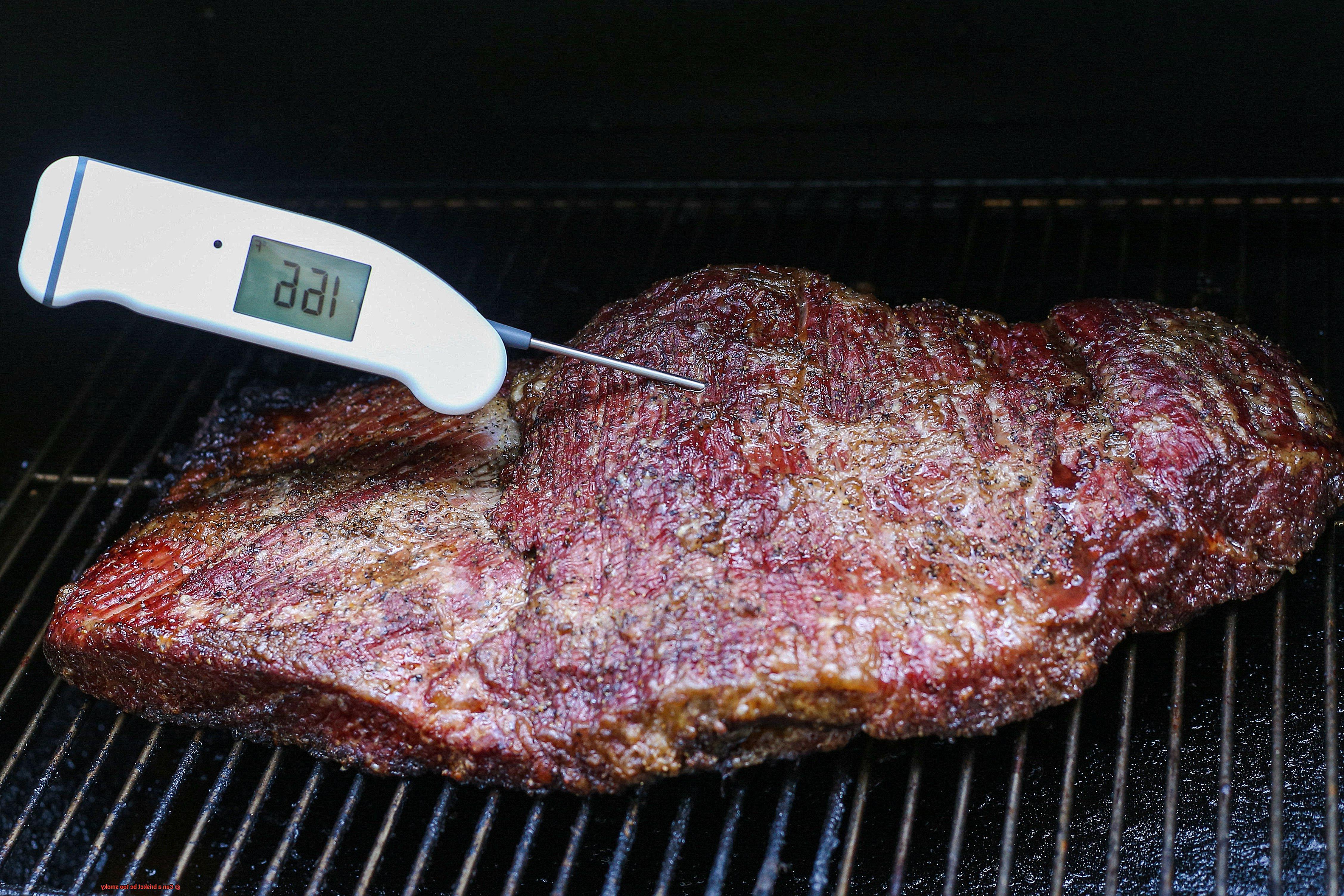
Personal Preference:
Your personal preference is key in determining the ideal duration of smoking. Some crave a gentle kiss of smoke, opting for shorter durations, while others seek a bold and robust flavor profile that can only be achieved through longer sessions. Experimentation is essential; start with shorter durations and gradually increase until you strike the perfect balance that satisfies your palate.
Wood Selection:
The choice of wood can make or break your smoking experience. Different woods impart varying levels of smokiness. Stronger woods like mesquite or hickory lend themselves to quicker flavor absorption, while milder woods like fruitwoods or pecan require longer durations to achieve a subtler smokiness that caresses your taste buds.
Temperature Control and Airflow Management:
Maintaining consistent temperature and proper airflow throughout the smoking process is crucial to ensure uniform smoke distribution. Invest in a reliable thermometer to monitor the heat, allowing you to make precise adjustments as needed. Managing the vents or dampers ensures a steady flow of smoke, striking a balance that transcends the realms of under-smoking or overpowering your masterpiece.
Salvaging an Overly Smoky Brisket
Imagine eagerly anticipating a mouthwatering, smoky brisket, only to be met with an overpowering, bitter taste. But fear not. In this article, we’ll share easy and effective steps to salvage that overly smoky brisket and transform it into a delectable dish that will leave your guests begging for more.
Step 1: Trim Away the Excess Smoke
Start by removing the outer layer of the brisket. This is where most of the smoke tends to accumulate, contributing to the overpowering flavor. By trimming off this layer, you’ll instantly reduce the smokiness and uncover the succulent meat beneath. Use a sharp knife to carefully slice off the outer edges, revealing the tender and juicy meat hidden underneath.
Step 2: Reinvent Your Brisket
If simply slicing away the outer layer isn’t enough, get creative and reimagine your brisket in new dishes. Chop or shred the meat and incorporate it into recipes like chili, tacos, or sandwiches. Combining the overly smoky meat with other ingredients will help balance out the smokiness and create a more enjoyable eating experience. The bold flavors of chili spices or the fresh crunch of taco toppings can divert attention from the excessive smoke.
Step 3: Embrace Citrus Marinades
Marinating your brisket in a citrus-based marinade can work wonders in mellowing out the strong smoky flavor. The acidity of citrus helps cut through the smoke, adding a refreshing twist to the meat. Experiment with combinations of lemon, lime, or orange juice, along with your favorite herbs and spices. Allow the brisket to marinate for at least a few hours or overnight to allow the flavors to permeate deeply into the meat.
Step 4: Sweeten the Deal
To counteract any lingering bitterness from excessive smoke, add a sweet glaze or sauce to your brisket. The natural sweetness will complement and balance out the smokiness, creating a harmonious blend of flavors. Consider using honey, maple syrup, or a tangy barbecue sauce to elevate your dish. Brush the glaze onto the brisket during the final stages of cooking or serve it as a side sauce for dipping.
Step 5: Dive into Soups and Stews
If all else fails, turn your overly smoky brisket into a star ingredient in hearty soups or stews. The addition of other ingredients and liquids will help dilute the smoky flavor further, resulting in a rich and flavorful dish that will leave no trace of the initial overpowering smoke. Slice or shred the brisket and add it to a simmering pot of vegetable soup, chili, or beef stew. Allow the flavors to meld together over low heat for a comforting and satisfying meal.
M5FyLL4O0dE” >
Conclusion
In the world of barbecue, there’s a delicate balance between smoky perfection and overwhelming flavor. But can a brisket be too smoky? The answer is yes. While many pitmasters strive for that perfect smoke ring and robust flavor, it’s important to remember that too much smoke can overpower the meat and leave an unpleasant aftertaste.
Imagine sinking your teeth into a beautifully cooked brisket, only to be met with an overpowering wave of smokiness that masks the natural flavors of the meat. It’s like listening to a symphony where one instrument drowns out all the others – it’s just not enjoyable.
When it comes to smoking meats, moderation is key. The goal should be to enhance the flavors of the meat, not drown them in smoke. A well-smoked brisket should have a subtle smokiness that complements the natural richness of the beef, allowing all its deliciousness to shine through.
Too much smoke can also result in a bitter taste that lingers on your palate long after you’ve finished your meal. It’s like sipping on a cup of coffee that has been left on the burner for too long – it leaves behind a burnt and unpleasant aftertaste.
So how do you strike that perfect balance? It all comes down to time and technique. Properly managing your smoker’s temperature and using quality wood chips or chunks can help control the amount of smoke infused into your brisket. Additionally, giving your meat enough time to cook allows for proper smoke penetration without overwhelming it.
In conclusion, while smoke is an essential element in creating mouthwatering barbecue, there is such a thing as too much of a good thing. A brisket can indeed be too smoky if it overpowers the meat or leaves behind an unpleasant aftertaste.

